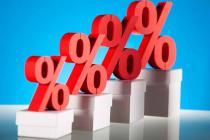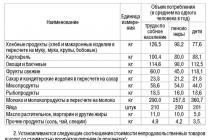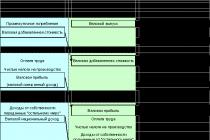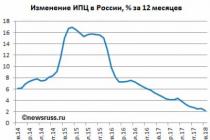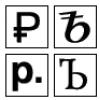A person in the process of his life has to constantly solve urgent problems related to meeting needs - in food, housing, gaining knowledge, self-realization, and many others. For this, an economic system has been created, within which people interact and realize their needs. We learn briefly about the role of the economy in the life of society.
Needs
Man and society are constantly evolving. They are constantly in need of various things to meet their needs. All needs are usually divided into several groups:
- natural (in food, sleep, housing and others);
- social (in communication, friendship, love);
- spiritual (in the acquisition of new knowledge, the development of cultural values).
The peculiarity of human needs is that they have no limit. When one is satisfied, new ones will certainly arise.
An example of unlimited needs is the plot of A. S. Pushkin's fairy tale "The Goldfish", in which the old woman, having received a new trough to replace the broken one, wanted a new hut, a tower, and so on.

We must not forget that the resources of the Earth, unlike needs, are limited. These are minerals, and forest, and fresh water. Therefore, it is important to organize the activities of people in such a way that the use of resources both satisfies the needs of people and is carried out within reasonable limits. Economics serves to regulate this process.
Participants of economic relations:
- consumers (individuals, family and other groups);
- manufacturers (enterprises, state)
All participants have to choose which needs are more important and which can be reduced or abandoned.
That is, entering into economic relations, the consumer evaluates what benefits he will receive and what funds will have to be spent. It is important for the manufacturer to create what society needs - economic benefits.
TOP 4 articleswho read along with this
The concept of good
Goods are understood as those means that help a person to satisfy his needs. They can be free and economic.
Free goods, as a rule, are available in nature in finished form. These are air, water, light and so on. And economic ones are created in the process of transforming resources. For example, food, technology, buildings, clothing.
The role of the economy
Let's figure out what is the role of the economy in the life of society.
Awareness of the limited resources and the importance of uniting into a single economic system led to the fact that society, having begun its journey with stone processing, has by now achieved a high development of science and technology, creating a well-coordinated branched trading network.
But with the rapid development of the production of consumer goods, the problem of the rational use of resources is becoming more acute. Fresh water, gas, oil, clean air - the destruction of all these benefits is irreversible, since a person cannot renew them.
What have we learned?
Having studied the topic for grade 10 about the economy and its role in the life of society, we found that in his life a person is forced to constantly take care of satisfaction different needs. The relations that arise in this case are called economic. In conditions of limited natural and other resources, participants in economic relations have to choose for themselves the most important needs and the most significant benefits for production. In general, the role of the economy is great, since the existence of such a system is designed to achieve a fair distribution of resources between people.
Topic quiz
Report Evaluation
average rating: 4.1. Total ratings received: 409.
We buy products, choose a dress or suit in a boutique, stock up stationery. All these actions are part of the global economic system, which is called the economy. It is she who, based on commodity-money relations, satisfies the basic needs of society and each of its members, gives us the opportunity to use in our own interests, and for the benefit of others, the vital benefits of civilization.
Needs
Human life is one continuous problem. Now we want to take a few sips of cold kvass, then try a fragrant donut, in a second we already dream of a new car or a trip to the sea. Not for a single moment can we calm down and constantly crave something. All these are needs - a person's need for certain things, resources, intangible values. The role of the economy in the life of society is to satisfy them, to provide us with everything necessary for normal life and development.
All people have different needs. They are constantly transforming - this is how we grow up, get smarter, our life values, statuses, and sometimes even religion and nationality change. But the most interesting thing is that human needs are constantly increasing, and supply can never meet demand. Therefore, a person sets certain restrictions for himself: due to moral principles or due to lack of finances. This should also be taken into account by the economy. And its role in society is to balance needs and limitations, satisfying the "golden" mean between them.
Resources
Another component of the normal life of each of us. Imagine that there will be no gas. We will not be able to cook our own food, heat our houses in winter. You will say that once our distant ancestors did without blue fuel: they made fires or built stoves. You can do it now, but why? If there is a resource, you need to sell it to people for their maximum comfort and convenience. This is the economy. Its role in the life of society is to find places where resources are concentrated, create conditions for their extraction, profitable sale and making a good profit from the transaction, so that in the future the same money will be invested again in activities.

Resources are:
- Limited. They are divided into renewable (animals and plants) and declining (land and mineral resources).
- Endless. This includes wind, solar energy and so on.
Unlike needs, the need for resources does not grow like mushrooms after rain. In addition, the need for them is often satisfied.
boons
The economy and its role in the life of society is an invariable component of the normal existence of people. It is designed to ensure the availability of not only resources, but also benefits. They can be created by a person for himself personally or for other people. In the latter case, commodity-money relations work: I provide a service - you pay me for it. For example, you are going to a resort in the summer. A hotel, a swimming pool, a bowling alley, a disco and other infrastructure facilities were built by one person for another. Everyone benefits from this conditional deal: the first is income, the second is quality recreation. These are public goods. Personal ones include the creation of comfort in the house, the passion for any occupation or hobby, visiting interesting places.

The role of the economy in the life of society is undeniable. And this can be clearly traced on the basis of goods alone. Think about whether we could live in a world where culture is completely absent, where there is no elementary housing, household items. Of course not. Even primitive, mentally limited people tried to make life easier for themselves: they invented an ax, arrows and a bow, a spear. Today, we actively use not only these ancient, but also modern benefits - the Internet, a computer, a smartphone. They are constantly being improved depending on our needs and the resources that exist in the world.
Standard of living
What is the place and role of the economy in the life of society? Big, one might say, even the most basic. Without its normal functioning, people cannot develop, work for the benefit of the world around them, not to mention the fact that they die of hunger and want. How efficiently the economy works, demonstrates the standard of living of all members of society. It includes providing the people with all the necessary products, goods and services for their safe, comfortable and most convenient existence.

We often ask ourselves why some countries manage to achieve prosperity, while in others many people live below the poverty line. Everything is very simple. Previously, the rulers of the powers believed that high level life must be achieved solely through the conquest of rich lands, further use their resources. But over time, people realized that even staying in their own small territory, one can reach unprecedented heights of development. Take, for example, Japan: the country is considered rich, although it has few resources. Thanks to their effective and moderate use, the state can boast of good provision and high income the majority of citizens. Therefore, the role of the economy in the life of society is, of course, very great.
Standard of living criteria
Undoubtedly, the main indicator is effective use resources: gas, water, electricity, timber, metal and so on. The main criteria are also considered:
- GDP - gross domestic product per capita. It is the sum of all goods and services produced by the nation in a year divided by the number of inhabitants.
- Living wage, the ratio of prices to the indicator of salaries, pensions and scholarships.
- Availability of education.
- health level.
- The state of the environment.
- Cultural development.

Ensuring the smooth and uninterrupted operation of all these systems is the main role of the economy in the life of society. The problems and judgments associated with this concept always change depending on the time period in which the people live. For example, UN experts believe that the standard of living in each country in modern world determines the so-called personality development index. It is calculated using the values: country's GDP, the average life expectancy of residents, their level of education and general development.
Reasons for the low efficiency of the economy
There are many of them. Firstly, this is the poor performance of the indicators described above. Secondly, the use of old technologies in production, low qualification of personnel, wasteful use of the benefits and wealth of the environment, and so on. Therefore, it is so important to study the role of the economy in the life of society from childhood. The 10th grade (students) of the secondary school should already be closely familiar with the course aimed at revealing the basic concepts, so as not to make major mistakes in the future and not lead the country to poverty. On the contrary, to be able to maximize the work of the area in which the future specialist will work.

The low efficiency of the economy dooms the people to poverty. The level of poverty is determined by assessing a person's income and the ability to provide themselves with everything necessary with its help. It is logical that the richer the state, the higher its threshold. Today The World Bank set the following poverty lines: a daily income of less than 1.25 US dollars. The role of the economy in the life of society is to overcome poverty and raise the standard of living of each of its members.
The social role of the economy in the life of society
people, his general welfare lifestyle directly depend on the standard of living, the availability of goods and resources. For example, the economy strongly influences a person's ability to buy a house, find a job, the number of women involved in industrial activities. Agree, if in a developed country a man earns enough and is able to provide for his family, his wife does not need to work 40 hours a week, sacrificing attention to children. She would rather stay at home, protect the hearth, take care of family members. As for work, you can go to it only for the sake of pleasure and self-development, and not for the sake of making money.

The economy and its role in the life of society can be traced even in the example of childbearing. Usually it drops sharply when the well-being of citizens worsens. Average life expectancy is another criterion by which one can assess the level of development of the state. Also here should be attributed the general discontent of the working people, the number of rallies and strikes organized by them, the total production of their labor.
Economics and politics
Ideally, the state should not directly interfere in commodity-money relations. It is only obliged to create optimal conditions for the development of the economy: to pass laws that would give enterprises more freedom, reduce taxes, guarantee compensation. The government is also called upon to direct the funds received as a result of activities to those areas of life that affect the overall well-being of each family: health care, education, national security.

The state of roads, the level of landscaping of streets, the degree of environmental pollution, and so on depend only on the competent actions of the state. Thanks to the correct, expedient distribution of finances, these areas will be developed to the maximum. As a result, the standard of living of a person will rise, the mood of each member of society will improve, his energy and ability to work will increase - the economy will work more smoothly and bring even more income. Everything is interconnected. Therefore, if you are asked about the place and role of the economy in the life of society, there is only one answer: the most advanced. It is the core of life not only for the whole country as a whole, but also for each individual separately.
The economy is both a science and a sphere of human activity, and a structure that ensures the production, distribution, exchange and consumption of goods and services in society.
The economy is any activity of people connected with material support living conditions and the creation economic benefits(goods and services).
The word "economy" comes from the Greek words oikos - housekeeping and nomos - law. In the literal sense, it is interpreted as an economy conducted in accordance with laws, rules, and norms.
Economics consists of macroeconomics and microeconomics.
Macroeconomics - the level of creating conditions, factors for performance economic activity.
Microeconomics - the level of constant interaction between consumers and producers.
The economy develops in two areas - material and non-material production.
material production- the process of creating material goods and the provision of material services.
Non-material production is the process of using material goods and satisfying spiritual needs.
The economy plays a huge role in the life of society.
First, because it provides people with the material conditions of their existence - food, clothing, housing and other consumer goods.
Secondly, because the economic sphere of the life of society is decisive, determining the course of all processes taking place in society.
The structure of the economy includes productive forces and production relations.
Productive forces - a set of means of production (objects of labor and means of labor), labor and technological processes.
Production relations - a mechanism for the creation, distribution, sale and exchange of goods.
The components of the economy are production, distribution, consumption and exchange.
Production - the process of creating material wealth, covering both the productive forces of society and the production relations of people
Distribution - division, giving each a certain part. The distribution can be according to the size of property, according to labor, according to needs.
Consumption is the use of something to satisfy needs. Society consumes produced goods and services.
Exchange - the process of movement of products of labor as a form of distribution of values produced by society. The exchange can be monetary, non-monetary, natural.
The most important economic role man - his participation in the labor process. The objective characteristics of human labor activity are productivity, efficiency and place in the system of social division of labor.
More on the topic 1. Economy and its role in human life.:
- Chapter 2 FEATURES OF THE BEHAVIOR OF ENTERPRISES AT DIFFERENT STAGES OF THE EVOLUTION OF A PLANNED ECONOMY
- CRITIQUE OF THE THEORIES OF “PLANNED CAPITALISM” AND “MIXED ECONOMY”
- 4.2. Problems and Prospects of Diversification of the Russian Economy
- 2.4. Political science theory of power and power relations; political life; the main characteristics of political life; politic system; institutional aspects of policy.
- 6.2. Philosophy the role of philosophy in the life of man and society; historical types of philosophy; man in the universe; philosophical; religious and scientific picture of the world; the nature of man and the meaning of his existence
- 7.1. Sociology culture as a system of values, meanings, patterns of actions of individuals; the influence of culture on social and economic relations; the reverse influence of the economy and socio-political life on culture; personality as an active subject; the relationship of the individual and society; role theories of personality
- 7.2. Philosophy Cognition as a form of active intellectual activity of a person; the role of philosophy in the formation of scientific knowledge; methods of scientific knowledge; methods of empirical and theoretical research; the role of practice in cognition; knowledge and faith
Under economy understand the system social production, the process of creating material wealth necessary human society for its normal existence and development, as well as the science that studies economic processes.
The economy plays a huge role in the life of society. It provides people with the material conditions of existence - food, clothing, housing and other consumer goods. Economic sphere- the main sphere of society, it determines the course of all processes occurring in it.
The main factors of production (or basic inputs) are:
the land with all its riches;
labor depends on the number of the population and its education and qualifications;
capital (machines, machine tools, premises, etc.);
Entrepreneurial ability.
The main questions of economics are what, how and for whom to produce.
Different economic systems solve them differently. Depending on this, they are divided into four main types: traditional, centralized (administrative-command), market and mixed.
FROM traditional economy manufacturing industry began. Now it has been preserved in a number of economically underdeveloped countries. It is based on natural form of economy. Signs natural production are: direct relations in production, distribution, exchange and consumption; products are produced for domestic consumption; It is based on communal (public) and private ownership of the means of production. traditional type economy prevailed in the pre-industrial stage of development of society.
Centralized (or administrative-command) economy based on a unified plan. It dominated the territory of the Soviet Union, in the countries of Eastern Europe, a number of Asian states. Currently preserved in North Korea and Cuba. Its main features are: state regulation national economy, which is based on state property for most economic resources; strong monopolization and bureaucratization of the economy; centralized economic planning of the entire economic activity.
Under market economy is understood based on commodity production. The most important mechanism for coordinating economic activity here is the market. For existence market economy private property is necessary (that is, the exclusive right to own, use and dispose of goods belonging to a person); competition; free, market-determined prices.
The economic systems mentioned above are almost never found in their pure form. In each country, elements of various economic systems are combined in their own way. Yes, in developed countries there is a combination of market and centralized economic systems, but the former plays the leading role, although the role of the state in organizing economic life society is significant. This combination is called a mixed economy. The main purpose of such a system is to use strengths and overcoming the shortcomings of the market and centralized economy. A classic example mixed economies are Sweden and Denmark.
In connection with the transition of a number of former socialist countries from a centrally controlled economy to a market economy, a special type of economic system, called transition economy. Its main task is to build a market economic system in the future.
Economy:
- an economic system that includes branches of material production (industry, agriculture, transport, etc.) and non-material spheres (education, culture, health care, etc.), providing society with material and intangible benefits. It provides people with the material conditions of existence - food, clothing, housing and other consumer goods.
- a science that explores how people in conditions of limited resources satisfy ever-growing needs. one
Economy as a system of management (social production):
Economic activity- a set of actions at different levels of management, as a result of which people satisfy their needs through the production and exchange of material goods and services. The definition of this term is closely related to the definition of the economy itself. An activity becomes economic when it aims or results in the production and exchange of goods or services recognized as both useful or rare. 2
Economic activity includes the following main elements: production, distribution and consumption.
- production (the process of creating economic goods and services);
- distribution (the division of a product or income between those involved in its production);
- exchange (a process in which money or another product is received instead of a product);
- consumption (the stage of use (durables) or destruction (food) of the product).
Production:
- Material production (production of material goods and material services (transport, trade, public utilities and consumer services))
- Non-material production (production of non-material goods and non-material services (education, healthcare, etc.)
The key concepts of production are the concepts of "goods" and "services".
Product- a product of labor produced for sale in the market.
Product features:
- must be intended for exchange (has value - labor embodied in the commodity);
- must satisfy the need of a person (has a use value - utility for the consumer);
- must be able to be exchanged for another commodity (has an exchange value)
Service- the result of useful activity of enterprises (organizations) and individuals aimed at meeting certain needs of the population and society. The production of tangible and intangible services is called the service sector. 3
Subjects of the economy
The subjects of the economy are:
- households;
- firms;
- state.
Entrepreneurs and households face three fundamental economic questions in their daily economic activities.
What to produce and in what quantity?(What kind of goods and services should be offered to consumers).
For whom to produce?(Who will be able to claim to receive the produced goods and services in their ownership).
How to produce?(Which one of possible ways production of goods (services) should be applied). four
Economics as a science
Economy is a set of specific economic disciplines such as industrial economics, economics Agriculture, labor economics, finance and credit, economic statistics and mathematics.
Economics as a science:
- main tasks (search for ways of efficient management of the economy; search for optimal mechanisms for the use of resources in the conditions of their limitedness and limitlessness of needs);
- subject of study (economic relations, connections and interdependencies arising in the process of economic development with the production of goods and services);
- feature (the main emphasis is on functional rather than causal relationships).
In modern economic theory two levels of analysis are used: microeconomic and macroeconomic.
- Microeconomics is the science of consumers, firms, and individual industries. Considers the problems of limited resources, choice, opportunity cost, price, changes in demand and supply of individual goods in individual markets, etc. Main actors: firm and household
- Macroeconomics is the science of the economy as a whole, the economic health of the country and the world. Considers the problems of unemployment and employment, increasing production volumes, economic growth, overcoming inflation, etc. Main subjects: firm, household and state. 5
Functions:
Economics performs a number of functions:
- cognitive function - manifested in the fact that the economy learns, explores, explains the essence and consequences of phenomena occurring in economic sphere the life of society;
- methodological function - involves the definition of economic science methods, means, rules research work in related sciences. For example, in relation to economic sociology, economic science performs a methodological function in the sense that it develops tools for the sociologist-researcher in this branch of the discipline;
- practical function - manifested in the implementation of achievements economics into management practice economic relations, production, etc.;
- educational function - manifested in the fact that the economy enables a person to gain knowledge in the most important sphere of society - economic;
- ideological function - is to substantiate the economy of the meaning of global economic processes, the goals of the development of the state and society.
The list of these functions is not closed - it is possible to add other functions of economics as a science.
Economics is closely connected with other sciences: sociology, cultural studies, political science, history, jurisprudence.






